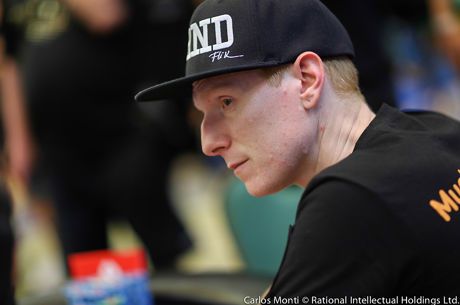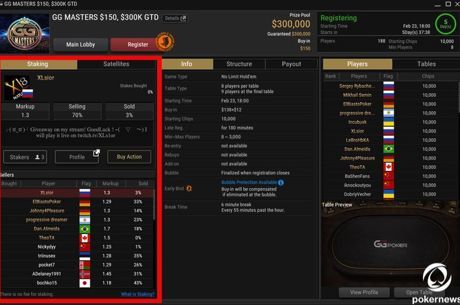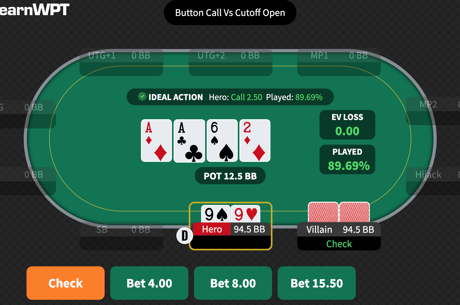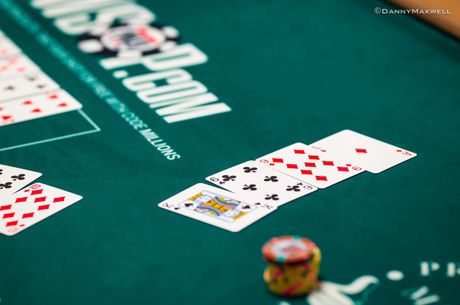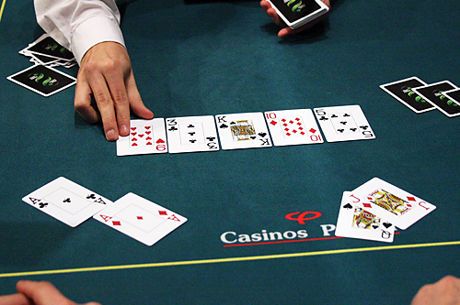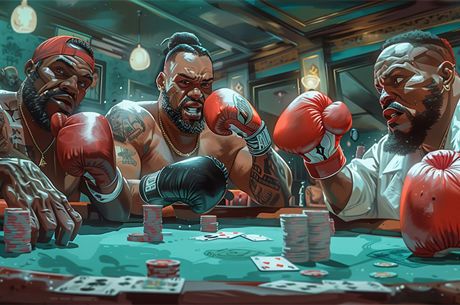You Decide: Call or Raise With Big Draw vs. Three Opponents?
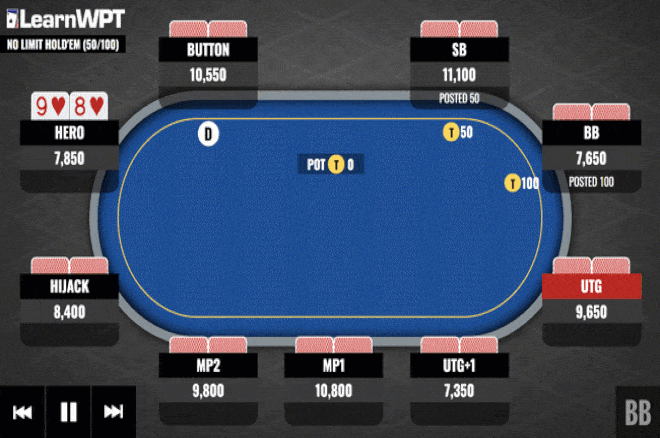
Table Of Contents
In this week's episode, we analyse another hand brought to you by our partner LearnWPT. Read the scenario, answer to the question — and then check out if you are already thinking like a poker pro.
To see even more examples and use LearnWPT interactive learning tools, register on this page (it's free).
The Hand
You are playing a no-limit hold'em tournament online when the following happens:
- UTG+1 raises and a middle position player calls.
- The hijack folds and you call from the cutoff with 9♥8♥.
- The button and small blind fold and the big blind calls.
The flop comes 3♣J♥Q♥.
The big blind bets and both UTG+1 and MP2 call.
The action is on you.
A Word from the Pros
When holding a draw and facing a bet, the first step we should take is to calculate our pot odds.
In this case, there is 3,650 already in the pot and it costs us 800 to call.
If we choose to call, there will be 4,450 total in the pot going to the turn.
Without taking into account any future betting, if we hit our draw 800 / 4450 or about 18 percent of the time, this call should show a profit.
We have a flush draw and gutshot straight draw, so we have 12 outs.
Using the "Rule of Two," we have about a 24 percent chance of hitting on the turn (12 x 2 = 24).
Even if we discount the 3♥ as an out (since it pairs the board), we still have a 22 percent chance of hitting on the turn.
Since our chance of hitting our draw is greater than our break-even equity needed given the pot odds, calling with our draw is profitable. This eliminates folding as an option.
But What about Raising?
One of the primary benefits of raising would be to induce folds from our opponents.
This is known as fold equity. Since this is a multi-way pot (four players on the flop), the chance of getting all of our opponents to fold is lower than if there were fewer opponents.
Raising would often simply put more money into the pot when we are behind.
Since getting all of our opponents to fold to a raise is far less likely, we should take the profitable pot odds we are getting and call the flop bet with our draw.
Solution
In this particular scenario, calling is the best play.
About LearnWPT
This article is brought to you by LearnWPT, a world-class poker training site and PokerNews partner.
Visit LearnWPT to transform your poker game and learn the tips and moves that will help you become a professional poker player.
On this site you find useful live workshops and useful resources to up your online game.

